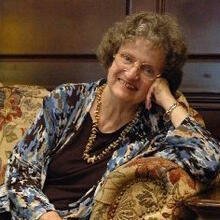The Monks of Manitoba
Rémy Rougeau has written a fresh and surprising narrative about the monastic life. It is a novel, or perhaps a series of linked short stories. But form is not what counts here. The odd angle of vision is what makes this book worthwhile. Rougeau’s story deals with young Paul Seneschal, a Canadian who goes off to the monastery for a reason he can state quite clearly when challenged by a woman on the train: to find the meaning of life. Oh dear, she replies uncomprehendingly, thus setting in motion one of the author’s motifs: religious life is unintelligible to many. Through Paul’s eyes (later he becomes Antoine) we see the monastic life quite clearly, never glamorized, yet shown with a certain transforming power. Rougeau’s account differs from such high spiritual narratives as Merton’s The Seven Storey Mountain or even Nouwen’s Genessee Diary. Little is said about wrestling with God or times of interior darkness.
Rougeau uses homely, small, even goofy details. His truth shines through the awkward and the concrete: an old monk, who naps behind the stove and wobbles with Parkinson’s disease, being relieved from his kitchen duties at last; a sign from God in the form of a polished stone, possibly a meteorite, being found in the middle of a field; the intimate connection between farmer-monks and their dairy herds; rubber boots and Tupperware and other junk spread far and wide after floods subside; the awkward foolishness of relatives who attend a monk’s profession bringing rosaries and prayer books, as if a monastery might lack such things.
Such pointillist dots come together to reveal a larger truth. From the outset the worship of the monks is appealing to 19-year-old Paul:
Deus, in adiutororium meum intende. The choir of the monks responded in Latin, and the church was awash in unhurried melody from the Middle Ages. Paul wondered if music was the thing that brought him to the abbey. Liturgy in his hometown church was not smooth and solemn. His parish priest spoke the Mass, and it plodded forward like a courtroom proceeding. But here, Latin chant and incense made of the worship something mysterious and pure.
But soon he learns that the life of a monk will be a long road of many trials. In the early 1970’s, Paul’s outside world is a dull routine of U.S. presidential scandals, of Spiro Agnew and Nixon Nixon Nixon. He hopes for more in the monastery. But as Paul takes up the Cisterican life at the Abbey of St. Norbert of the Strict Observance, his vision of the religious life is changed by dozens of matters of small routine: Your shoes are too loud. You must go to the church to dust the choir stalls. Paul, now known as Antoine, must shovel snow, wash floors, clean bathrooms, learn sign language, keep silence, help in the greenhouse and work with the dairy herd most of all.
Antoine’s larger challenges involve death, sexuality and madness, all within the closed circle of his Manitoba monastery. Perhaps the most amusing challenge comes when Antoine is appointed liaison to a group of visiting Buddhist monks. Immediately he is assailed with a certain temptation to pride, telling others: I am the official East-West Dialogue Contact Person for our abbey. I will not relinquish my responsibility.... The entire encounter with the visiting Buddhists, including their delight in the dairy herds and their request for fresh milk, is a snapshot of mid 20th-century Catholicism. Brother Antoine worries that 74-year-old Brother Norbert will try to convert the Buddhists to Christianity, as Norbert replies, When you get to be seventy-four, you can do exactly as you like.
Yes, the author of All We Knew of Heaven is a monk, currently a Benedictine in the upper Midwest. Apparently he has drawn upon memories of an earlier time with the Cistercians, and this first novel also shows signs of writing skill attained through diligence. Rougeau acknowledges the influence of such luminaries as Andre Dubus III and James Carroll, among others, and his training at Emerson College. Clearly he is a natural storyteller, but he has worked at his craft.
To me, the most striking thing about the novel is its hidden story of personal transformation. The story develops its sharpest edge when Antoine grows tired of prayer.
Antoine began to find the frequent bell for prayer rather irksome. Barn duties had to be left behind as he rushed off to church. It did not occur to him to think of work itself as a prayer, the care of animals as a vehicle to holiness. Mucking out stalls, he whistled Yesterday’ by the Beatles. Sometimes he wailed with pleasure under the roar of the manure conveyer.... By and large, his cows were uncomplicated. They readily took to a schedule, and each occupied the same stall, day after day, with stolid contentment. To them the beaten path was sweet. To Antoine, however, the path between barn and church was not an easy one.
As Antoine deals with disenchantment, his boredom with monastic routine, it is clear (to us, if not to him) that his interior life is growing. Gradually we see that his obedience and submission to his appointed way are transforming. At the end of the narrative, Rougeau lists the names of all the monks at the time of Brother Antoine’s novitiate. I think he should also have listed all the cows: Claudine, Daphne, Francoise, Bernadette, Josephine and Nadine, among othersthe point being that everyday reality is the ground of this book, and its genius.
I have read many works of spiritual instruction, and quite a few works of fiction. This work never departs from the truth of narrative, never lectures, never points the moral. But what a revelation.
This article also appeared in print, under the headline “The Monks of Manitoba,” in the October 1, 2001, issue.








